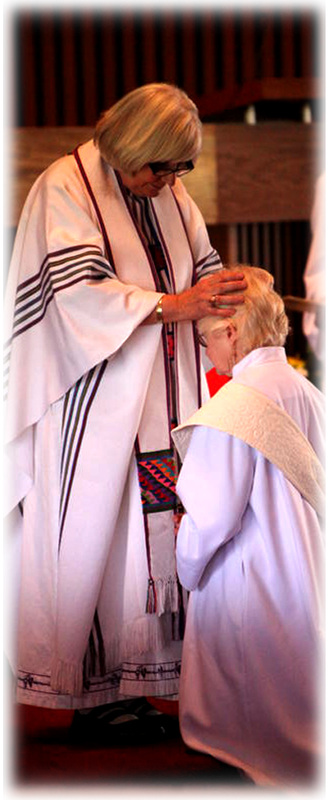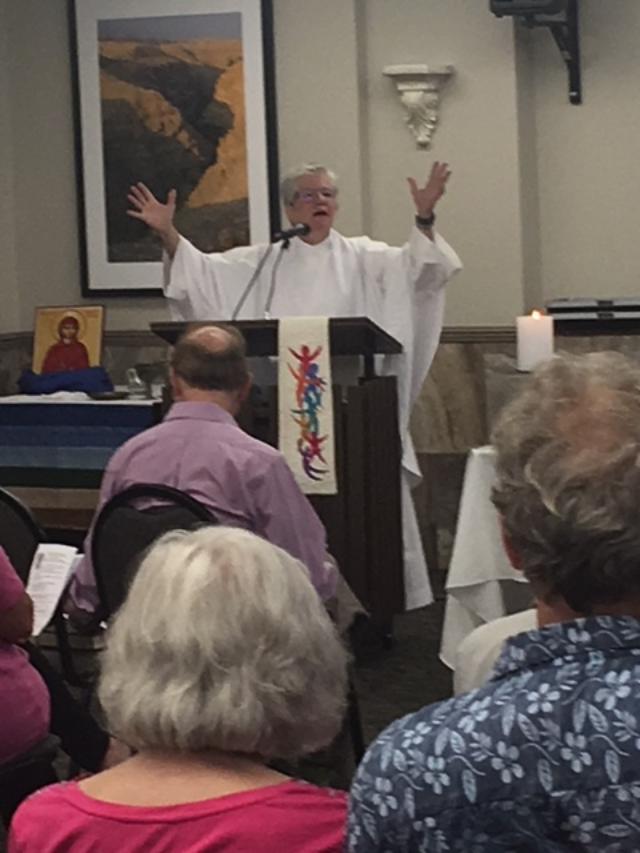From Prayers of the Cosmos by Neil Douglas-Klotz
The richness of expression present in the native Aramaic language of Jesus is a treasure that has been lost—or limited only to scholars—for too long. To discover this treasure, we must challenge ourselves to participate in the prophetic and mystical tradition that Jesus as represented. It is a far cry from our ordinary way of thinking.
A tradition of both native Middle Eastern and Hebraic mysticism says that each statement of sacred teaching must be examined from at least there points of view: the intellectual, the metaphorical, and the universal (or mystical). From the first viewpoint, we consider the face value of the words in question—what so-called modern people normally call the “literal” meaning.
According to native Middle Eastern mysticism, however, each Aramaic word presents several possible “literal” translations. “Blessed are the meek, for they shall inherit the earth” could as easily be translated “Blessed are the gentle” or “Blessed are those who have softened the rigidity within.”The word for “earth” in Aramaic also carries the meanings of “earthiness”, “the natural abundance of nature,” and “everything that appears in particular forms.” To understand how all these relate to one another, we must go further.
From the second viewpoint, we consider how a statement or story presents a metaphor for our lives—or the life of a community. Here we must awaken our poetic sensibility: we must participate in re-creating meaning from several possible literal translations. With reference to the above saying of Jesus, where are the rigid place in our lives—or in the life of our society? How do they prevent us from receiving sustenance from the natural abundance of nature?
From the third viewpoint, the universal or mystical, one comes to a truth of the experience pointed to by a particular statement. Here we must go beyond seeing a prayer as an affirmation or petition, or a parable as mere metaphor. We must embrace the wordless experience to which the living words of a mystic point. To continue the above example: one faces the question, “What do the words rigid and soft have to do with my experience life, of the cosmos, of God? What feelings do the sounds of the key words in Aramaic evoke? How do I act responsibly from this new understanding?” There are no set answers to these questions: they challenge us to an individual response.
To a native Middle Eastern mystic like Jesus, none of these viewpoints exclude the others. One holds all the possible meanings of key sacred phrases and prayer and lets them work inside.
An unnatural division between God, Nature and humanity, unknown to people who lived close to the earth, crept into our language with the advent of modern civilization.
Some of the difficulty harkens back to the source of our texts—and our thinking. Most of the English translations of the words of Jesus come from Greek, a language that differs greatly from Aramaic. Aramaic was the common spoken language throughout the Middle East at the time of Jesus and the tongue in which he expressed his teaching. (Hebrew was primarily a temple language at this time.)
Unlike Greek, Aramaic does not draw sharp lines between means and ends, or between an inner quality and an outer action. Both are always present. When Jesus refers to the “kingdom of heaven,” this kingdom is always both within and among us. Likewise, “neighbor” is both inside and outside, as is the “self” that we are to love in the same degree as our “neighbor.” Unlike Greek, Aramaic presents a fluid and holistic view of the cosmos. The arbitrary borders found in Greek between “mind,” “body,” and “spirit” fall away.
Furthermore, like its sister languages Hebrew and Arabic, Aramaic can express many layers of meaning. . . . (E)ach word may have several meanings. At firs seemingly unrelated, but upon contemplation revealing an inner connection. The same word may be translated, for instance, as “name,” “light,” “sound,” or “experience.”
Confronted with such variety, one needs to look at each word or phrase from several different points of view—the ones mentioned above, and possibly others. Jesus showed a mastery of this use of transformative language, which survives even through inadequate translations.
In addition, the Aramaic language is close to the earth, rich in images of planting and harvesting, full of views of the natural wonder of the cosmos. “Heaven” in Aramaic ceases to be a metaphysical concept and presents the image of “light and sound shining through all creation.”
A comparison
The Beatitudes (Matthew 5: 3-12) from the King James Version
The Beatitudes as interpreted by Neil Douglas-Klotz
Blessed are the poor in spirit: for theirs is the kingdom of heaven.
Happy and aligned with the One are those who find their home in the breathing; they shall find their ruling principles and ideals guided by God’s light.
Blessed are they that mourn; for they shall be comforted.
Tuned to the Source are those feeling deeply confused by life; they shall be returned from their wandering.
Blessed are the meek; for they shall inherit the earth.
Aligned with the One are the humble, those submitted to God’s will; they shall be open to receive the splendor of earth’s fruits.
Blessed are they which do hunger and thirst after righteousness; for they shall be filled.
Healed are those who persistently feel inside: “If only I could find new strength and a clear purpose on which to base my life”; they shall be embraced by birthing power.
Blessed are the merciful; for they shall obtain mercy.
Tuned to the Source are those who shine from the deepest place in their bodies; they shall feel the heat of cosmic ardor.
Blessed are the pure in heart; for they shall see God.
Healthy are those whose passion is electrified by deep, abiding purpose; they shall regard the power that moves and shows itself in all things.
Blessed are the peacemakers; for they shall be called the children of God.
Healed are those who bear the fruit of sympathy and safety for all; they shall hasten the coming of God’s new creation.
Blessed are they which are persecuted for righteousness’ sake; for theirs is the kingdom of heaven.
Tuned to the Source are those persecuted for trying to right society’s balance; theirs is the ruling principle of the cosmos.
Blessed are ye, when men shall revile you, and persecute you, and shall say all manner of evil against you falsely, for my sake.
Renewal when you are reproached and driven away by the clamor of evil on all sides, for my sake . . .
Rejoice, and be exceedingly glad: for great is your reward in heaven: for so persecuted they the prophets which were before you.
Do everything extreme, including letting your ego disappear, for this is the secret of claiming your expanded home in the universe.
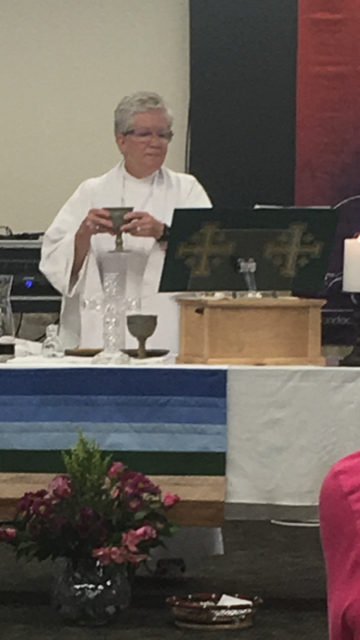
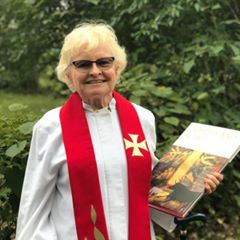
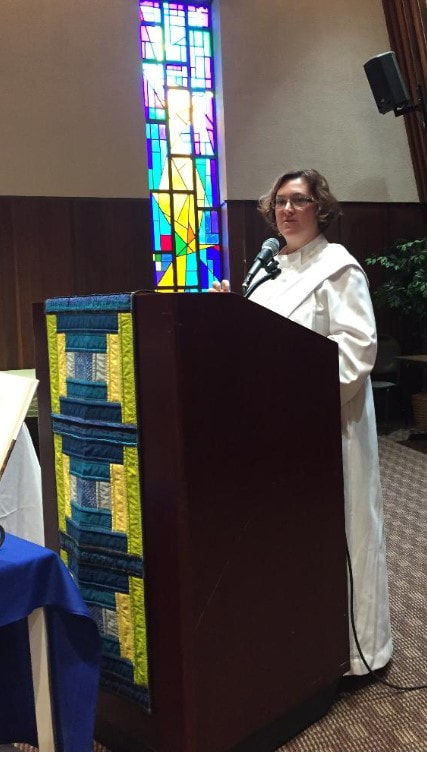
 RSS Feed
RSS Feed
